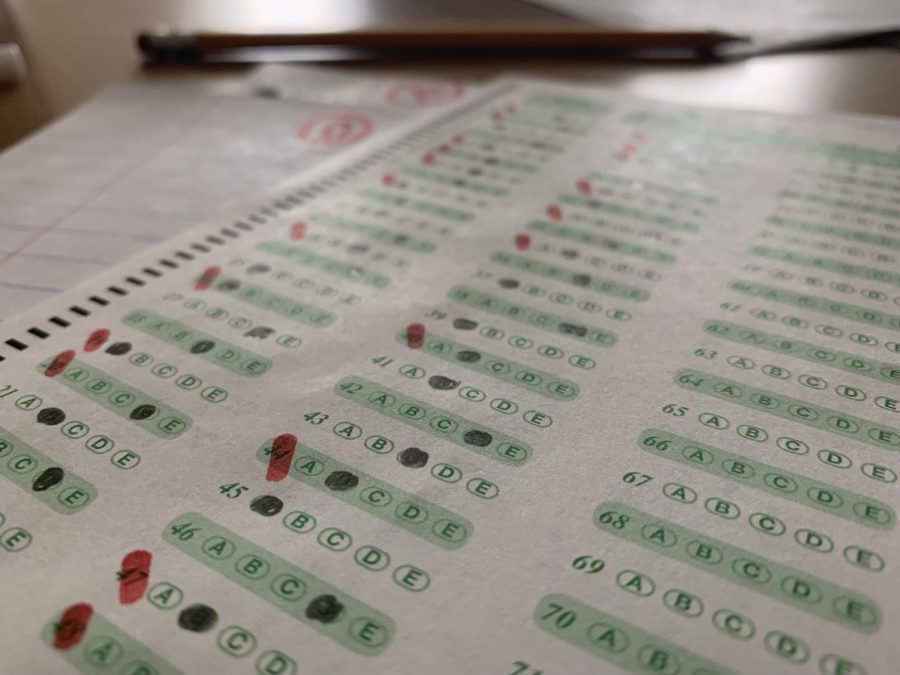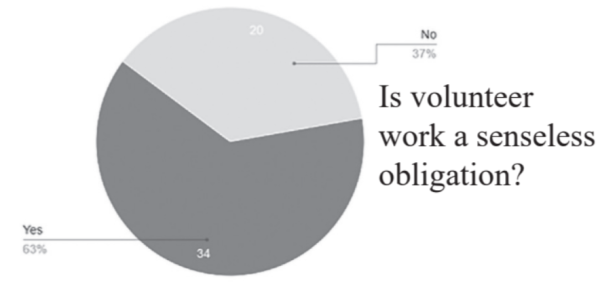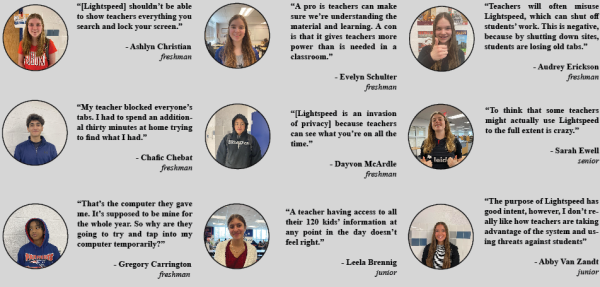Educational egos’ effects on academia
Photo courtesy of Brendan Talbot
Students often struggle with stubbornly difficult teachers and unfair grading policies.
Despite having their pupils’ fates in their hands, some teachers take pride in students’ failure.
Grades are often students’ greatest and most pressing concern, so when the first words they’re met with when starting a class are “my class average is a C,” they know they’re in for a rough year. Teachers who purposefully make their classes too difficult for students to fuel their personal power trips need to be removed from education.
Teachers boasting about low class averages isn’t the flex they think it is. Instead of representing a well-respected and educational class, it tells students that their teachers would rather play into their own egos than actually prepare them for the future. If a teaching style can not produce an A/B class average, that teaching style should not be used. A low class average reflects a poor teacher, not a difficult curriculum.
A teacher’s primary responsibility should be to educate, not assess. Too often in today’s society, teachers get caught up in testing and grading their students and forget to actually teach. Especially in Fairfax County Public Schools (FCPS), students spend 13 years of their lives learning how to pass tests rather than learning life skills. For example, Advanced Placement (AP) classes often spend so much time preparing students for the exam that there’s no time left to gain an in-depth understanding of the subject that a college-level class should impart.
At some point, grades may have been truly representative of understanding, but now they’ve become vastly distorted. An A should represent mastery of a subject, with a B being an average understanding. Yet in FCPS, anything below an A is often considered a failure by parents or colleges. The teachers are not at fault for this, as they have no control over colleges or even their own curriculums, but teachers do have control over one crucial aspect: individual grades. Teachers have the utmost control over their students’ futures, so when given the option, they should always err on the side of kindness. Students don’t learn from bad grades, but they do suffer from them, so it serves no purpose to grade harshly and unfairly.
Teachers should also do away with capped remediation scores. If grades represent mastery, then a 100% on a retake is just as valid as a 100% on the first try; both indicate mastery. Remediation should give points back in full because punishing students with reduced points discourages them from doing any remediation at all. Many teachers cap retake scores to 80% or give only half or quarter points back. Why? A student who shows full understanding of a subject deserves full credit. If you are a teacher who essentially punishes students for putting in extra effort, you need to seriously re-examine your motives.
Electives also suffer from modern grading culture. An elective should be a place for creative expression or learning different skills. Electives nurture students’ passions and shouldn’t be treated like a traditional class. Fine arts electives should never give failing grades unless a student doesn’t put in proper effort. Art, whether it be music, theater, or traditional art, is an expression of creativity and not something that can be graded on an objective scale. Teachers who grade fine arts electives harshly don’t inspire students, they make them hate their passions. It’s impossible to commodify creativity and teachers who try just suck the magic out of fine arts.
The first 18 years of a student’s life determines the rest of it, and teachers happen to control the first 18. It doesn’t hurt teachers to grade kindly, but it does greatly help students.











